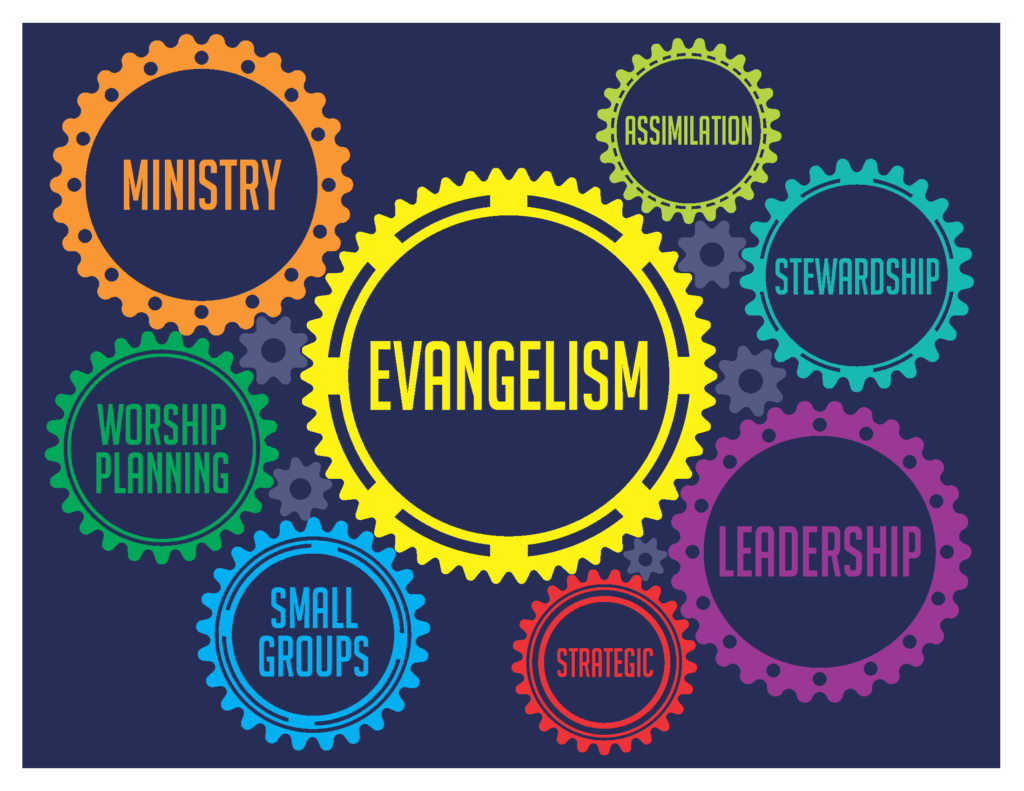 Think about the system you have for getting dressed in the morning. You don’t put on your deodorant until you get out of the shower. You drink your coffee before you brush your teeth. Right?
Think about the system you have for getting dressed in the morning. You don’t put on your deodorant until you get out of the shower. You drink your coffee before you brush your teeth. Right?
There’s a system to the way you prepare yourself for the day that makes getting out of the house faster and easier. You also have a system for the way you organize your calendar. You have a system for the way you prepare for a Sunday morning… even if you don’t realize it.
Don’t Miss the Most Critical Church Systems Boot Camp Yet!
Click Here to Learn More and Sign Up Now.
In speaking to pastors and church leaders across the country, I end up being on the road a lot. I check in and out of hotels regularly. Until recently, I used to leave something behind almost every time I checked out. I would inevitably forget my cell phone, its charger, my keys, or something else that wouldn’t hit me until I was miles away. So, I developed a simple system.
Now, whenever I go into a hotel room, I put all of my miscellaneous things on top of the television, rather than scattering them across the desk, dresser, bedside tables and bathroom vanities. Since I’ve implemented this system, I don’t have to waste precious time and gas money going back to hotels to pick up the things I’ve left. And I don’t have to deal with the stress of knowing that my phone is going to die any minute or that my house keys are in someone else’s hands. This rudimentary system is doing what a system is meant to do: it’s saving me stress, time, energy and money.
A S.Y.S.T.E.M. is any ongoing process that Saves You Stress, Time, Energy and Money, and continues to produce results.
Good systems function under the surface to keep things running smoothly so that you can concentrate on more important priorities. We may not be aware of a good system when it’s running well, but there is no mistaking when something isn’t working like it should.
Can the same thing be true in the church? Absolutely.
[bctt tweet=”Good systems function under the surface to keep things running smoothly.” username=”nelsonsearcy”] We know that the church is a body, so it follows that the church also has systems working beneath the surface. Even if you don’t know how to identify those systems, much less keep them healthy, they are there, both simple and complex, ready to help you achieve God’s purposes for your church.
We know that the church is a body, so it follows that the church also has systems working beneath the surface. Even if you don’t know how to identify those systems, much less keep them healthy, they are there, both simple and complex, ready to help you achieve God’s purposes for your church.
The eight systems of every church are interconnected. While some may be more developed than others, none of these systems can stand alone. And since a church is a living entity, like us, the well-developed systems run whether we are thinking about them are not. Still, to make sure that all of our church’s systems are running correctly, we should take them in for a periodic checkup.
Healthy churches have healthy systems. Eight systems, to be exact:
- Assimilation: How we move people from first-time guests to fully-engaged members
- Evangelism: How we attract more unchurched and mobilize our people to reach more people for Christ
- Stewardship: How we develop extravagant givers at our church

- Ministry: How we mobilize people for significant ministry
- Strategy: How we constantly evaluate and improve our church
- Small Groups: How we fill and reproduce small groups at our church
- Leadership: How we develop leaders at all levels of our church
- Worship Planning: How we plan, implement and evaluate our services
All churches are made up of the same exact systems, even though we may view and utilize them in slightly different ways based on our individual calls to ministry. The question isn’t whether or not these systems are in place, but whether or not they’re being maximized.
There are simple ways to foster the full potential of your systems — and thereby the full redemptive potential of your church — no matter what stage each one is currently in. Whether your church is like a brand-new baby, just starting the journey of growth, or like a robust adult in the prime of life, its eight systems are in place, waiting to be maximized for life-changing results.
Your partner in ministry,
Nelson
Share This Post

